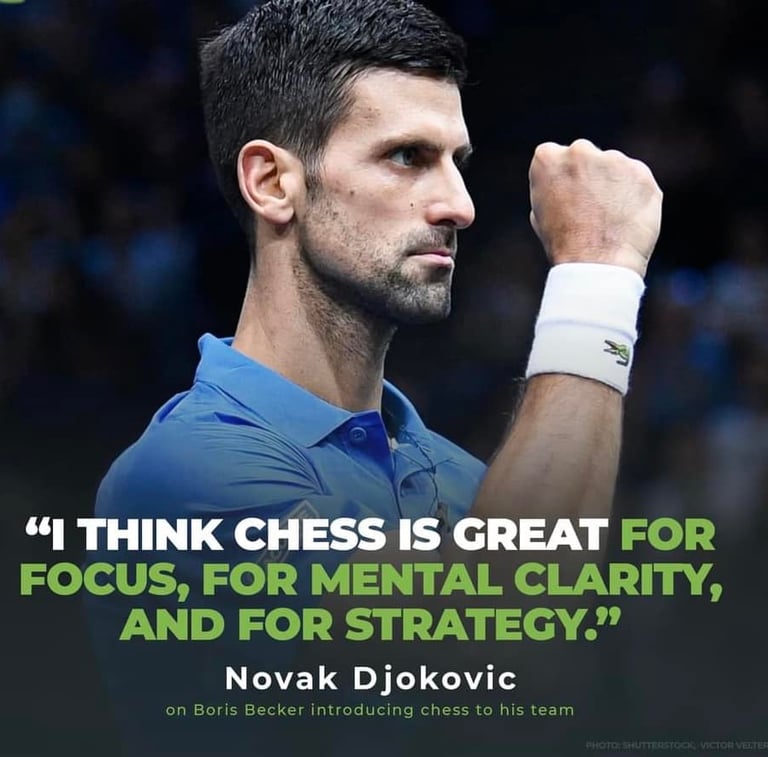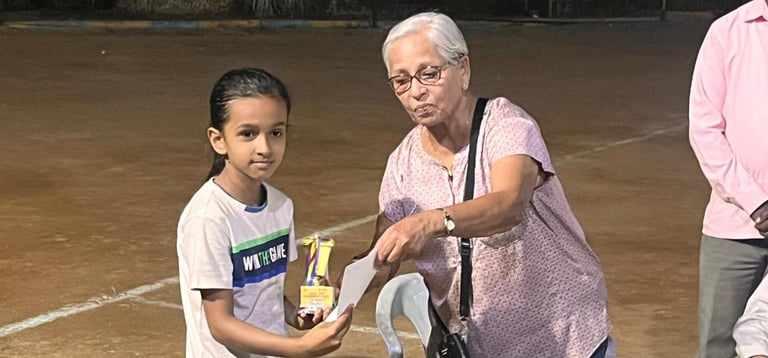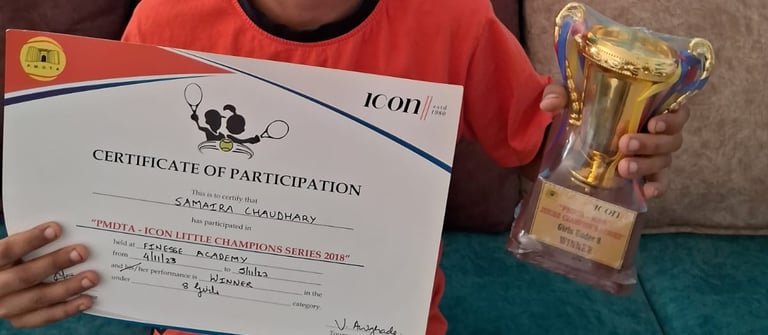The Surprising Connection Between Tennis and Chess
ARTICLES


Tennis and chess may seem like two completely different activities, but they share a surprising connection that goes beyond their competitive nature. Recently, tennis player Novak Djokovic made a thought-provoking statement, saying, 'I think Chess is great for focus, for mental clarity, and for strategy.' This statement highlights the similarities between the two sports and raises the question of how playing chess can benefit young tennis players.
One remarkable example of this connection is the recent success of Samaira Chaudhary, a student at the White Knight Chess Academy, who won the first place in a tennis tournament in Pune. Samaira's achievement not only demonstrates her talent and dedication to tennis but also showcases the impact of chess on her performance.
Chess and tennis are both mentally challenging activities that require focus, strategic thinking, and quick decision-making. By delving into the similarities between these two sports, we can explore how playing chess can enhance a young tennis player's skills and overall performance.
Improved Mental Clarity and Focus
Chess is known for its ability to sharpen the mind and improve mental clarity. The game requires players to analyze multiple moves ahead, anticipate their opponent's strategies, and make calculated decisions. Similarly, tennis demands intense focus and concentration to react swiftly to the opponent's shots and anticipate their next move.
By practicing chess, young tennis players can develop their ability to concentrate for longer periods, enhance their mental stamina, and improve their decision-making skills on the tennis court. Chess trains the brain to think strategically, which can translate into better shot selection and tactical awareness during a tennis match.
Enhanced Strategic Thinking
Chess is often referred to as 'the game of kings' due to its strategic nature. Every move in chess has consequences, and players must think several steps ahead to outmaneuver their opponent. This strategic thinking is transferable to the tennis court, where players need to anticipate their opponent's moves, analyze the court's positioning, and develop effective game plans.
By engaging in chess, young tennis players can enhance their strategic thinking abilities. They learn to evaluate different options, consider the consequences of each move, and make decisions based on long-term goals. This strategic mindset can give them a competitive edge in tennis by allowing them to anticipate their opponent's shots and plan their own moves strategically.
Improved Problem-Solving Skills
Chess is a game of problem-solving. Players are constantly presented with challenges and must find creative solutions to overcome them. This problem-solving ability is crucial in tennis, where players face various situations during a match that require quick thinking and adaptability.
By playing chess, young tennis players can develop their problem-solving skills. They learn to analyze complex situations, think critically, and find innovative solutions. This skill set can help them navigate challenging moments on the tennis court, such as adjusting their tactics mid-match, strategizing during tie-breakers, or finding ways to break their opponent's serve.
Overall, the connection between tennis and chess goes beyond their surface differences. Both sports require mental agility, focus, and strategic thinking. By introducing young tennis players to the game of chess, we can provide them with a valuable tool to enhance their tennis skills and overall performance.
Encouraging Tennis Parents to Embrace Chess
As parents, we are always looking for ways to support our children's development and help them excel in their chosen sports. By highlighting the connection between tennis and chess, we can encourage more tennis-playing kids and their parents to embrace chess as a complementary activity.
Chess can provide a break from the physical demands of tennis while still offering mental stimulation and skill development. It can be a fun and engaging activity for tennis players to enjoy during their downtime or as part of their training routine.
Furthermore, chess can foster a sense of camaraderie among young tennis players. Organizing chess tournaments or chess clubs within tennis academies can create a supportive community where players can challenge each other intellectually and build lasting friendships.
In conclusion, tennis and chess share a surprising connection that extends beyond their apparent differences. By recognizing the benefits of chess for tennis players, we can promote the integration of these two activities and provide young athletes with a well-rounded approach to their development. So, let's encourage more tennis-playing kids to explore the world of chess and unlock their full potential on and off the tennis court.
Keyword: Chess Training near me, Chess classes near me, Online chess Lessons, chess coaching, learn chess online, Chess play and learn, chess play & learn, Chess and tennis connection.




